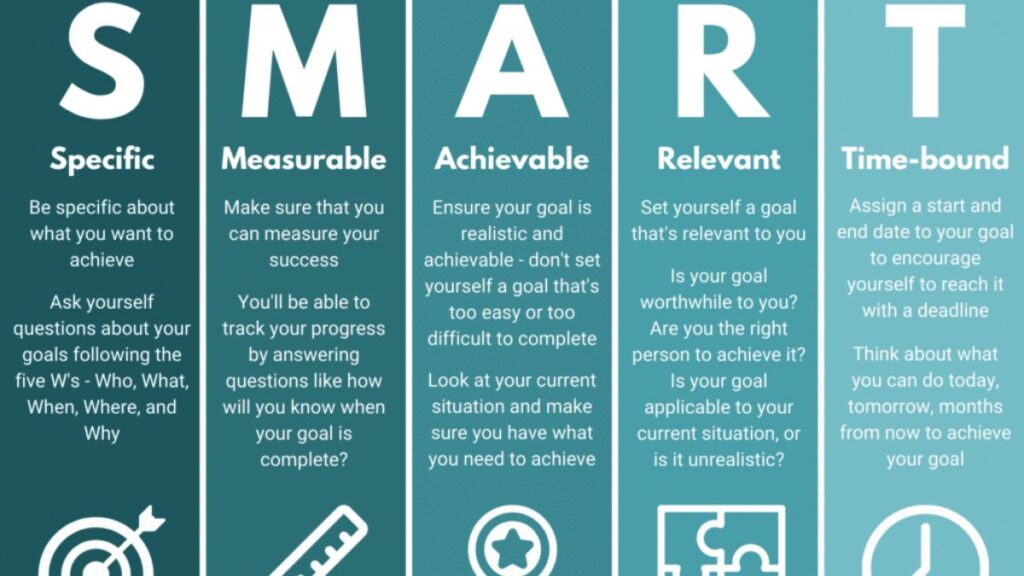Setting goals is a fundamental aspect of achieving success in any area of life. Whether it’s in personal development, education, or career advancement, clear goals provide direction and motivation. However, not all goals are created equal. The SMART framework for goal setting—Specific, Measurable, Achievable, Relevant, and Time-bound—offers a structured approach that can significantly enhance motivation. In this article, we will explore how setting SMART goals serves as a powerful pathway to enhanced motivation, providing actionable insights and practical examples that can inspire you to take control of your aspirations.
Understanding SMART Goals
The SMART framework is widely recognized for its effectiveness in clarifying goals and making them attainable. Let’s break down each component of SMART to understand how it contributes to motivation:
Specific
The first element of SMART goals is specificity. A goal needs to be clear and precise; it should answer the questions of who, what, where, when, and why. Instead of saying, “I want to get fit,” a specific goal would be, “I want to run a 5K race in my local park.” This specificity allows you to visualize the goal and understand exactly what you are aiming for, which is a crucial motivator. When a goal is specific, it minimizes ambiguity, making it easier to focus your efforts and resources on achieving it.
Measurable
Measurement is vital for tracking progress and maintaining motivation. A measurable goal has criteria for success that allow you to gauge your progress along the way. Continuing with the previous example, you might set a measurable goal of “running 5 kilometers in under 30 minutes.” This gives you tangible benchmarks to strive for. Regularly measuring your progress—whether through tracking your run times or recording your workouts—provides feedback that can motivate you to continue. Seeing how far you’ve come can be incredibly encouraging and reinforces your commitment to achieving your goal.
Achievable
While it’s important to set ambitious goals, they must also be achievable. An achievable goal considers your current capabilities, resources, and potential obstacles. Setting a goal to “run a marathon next month” might be unrealistic for someone who is just starting to exercise. Instead, an achievable goal could be “to run three times a week for the next month.” This ensures that your goal is within reach and encourages a sense of accomplishment as you make progress. By setting achievable goals, you foster a positive mindset and increase your chances of success, which can, in turn, boost your motivation to pursue further challenges.
Relevant
Goals should align with your larger life objectives and values. A relevant goal resonates with your passions and long-term aspirations, providing a meaningful reason to pursue it. For instance, if your ultimate aim is to improve your overall health, setting a goal to join a local sports team is relevant and supports your broader ambition. When your goals are relevant, they create a strong connection to your motivations and desires, making the process of pursuing them more engaging and fulfilling. This relevance also serves as a reminder of why you started, helping you stay motivated during challenging times.
Time-bound
Every goal needs a deadline. A time-bound goal establishes a clear timeline for completion, which can instill a sense of urgency and motivation. Instead of saying, “I want to learn to play the guitar,” a time-bound goal would be, “I want to learn to play five songs on the guitar by the end of three months.” This creates a sense of accountability and helps you stay focused on your objective. Deadlines encourage action and help prevent procrastination, which can be a significant barrier to motivation. By breaking your larger goals into smaller, time-bound milestones, you create a roadmap that keeps you on track and motivated.
The Motivational Impact of Setting SMART Goals
Setting SMART goals has a profound impact on motivation for several reasons. Understanding these benefits can help you appreciate the importance of this structured approach and inspire you to implement it in your own life.
Clarity and Focus
One of the primary benefits of SMART goals is the clarity they provide. When you set clear, specific goals, you know exactly what you are working towards. This clarity reduces distractions and helps you maintain focus on your priorities. In a world full of competing demands and information overload, having a defined path can enhance motivation by simplifying decision-making processes. When you are clear about your objectives, you are more likely to stay committed and energized about your progress.
Increased Confidence
Achieving milestones along the way to your ultimate goal fosters a sense of accomplishment and builds confidence. Each time you reach a measurable target, such as completing a training session or mastering a new skill, you reinforce your belief in your abilities. This increased self-efficacy can create a positive feedback loop where success breeds further motivation. The more confident you feel about achieving your goals, the more likely you are to take on new challenges and strive for even greater accomplishments.
Enhanced Accountability
SMART goals encourage accountability, both to yourself and to others. By making your goals specific and time-bound, you create a framework that allows you to track your progress and hold yourself accountable. Sharing your goals with friends, family, or colleagues can further enhance this accountability. When you have someone else aware of your aspirations, it adds a layer of commitment and motivation. Knowing that others are rooting for your success can inspire you to stay on track and push through obstacles.
Motivation through Progress Tracking
The measurable aspect of SMART goals enables you to track your progress. Regularly assessing your advancement towards your goals can be a significant motivational factor. Utilizing tools such as journals, apps, or charts to visualize your achievements can make the journey more engaging. For instance, a fitness app that shows your running distances and times can motivate you to improve further as you see your progress in real-time. The sense of achievement that comes from tracking progress can boost your morale and drive you to continue striving towards your goals.
Resilience and Adaptability
While the SMART framework emphasizes setting specific targets, it also allows for adaptability. Life is unpredictable, and sometimes goals may need to be adjusted based on changing circumstances. By adopting a SMART approach, you can reassess and modify your goals as needed without losing sight of your overall direction. This flexibility helps maintain motivation even in the face of setbacks. For instance, if you planned to run outside but faced inclement weather, adjusting your goal to complete a workout indoors keeps you engaged and on track.
Practical Tips for Setting SMART Goals
To effectively implement SMART goals in your life, consider the following tips:
- Write Down Your Goals: Documenting your goals helps solidify your commitment and allows you to revisit them regularly. Use a journal, digital note, or goal-setting app to track your progress.
- Break Goals into Smaller Tasks: Dividing larger goals into smaller, manageable tasks can prevent overwhelm and make it easier to take action. Celebrate each small achievement to maintain motivation.
- Review and Adjust Regularly: Schedule regular check-ins to assess your progress and make necessary adjustments. This keeps your goals relevant and aligned with your current circumstances and aspirations.
- Visualize Success: Spend time visualizing the successful completion of your goals. Imagining the feelings associated with achievement can enhance your motivation to pursue them.
- Seek Support: Share your goals with supportive friends or mentors who can offer encouragement and hold you accountable. Engaging with others can provide motivation and foster a sense of community.
Conclusion
Setting SMART goals is an effective strategy for enhancing motivation and achieving meaningful outcomes in your life. By ensuring that your goals are Specific, Measurable, Achievable, Relevant, and Time-bound, you can create a clear roadmap to success that fosters focus, confidence, and accountability. The motivational impact of SMART goals extends beyond mere achievement; it cultivates resilience, adaptability, and a sense of fulfillment. As you embark on your journey toward your aspirations, remember that each small step taken in alignment with your SMART goals brings you closer to your desired future. Embrace this pathway to enhanced motivation, and watch as your dreams transform into reality.






